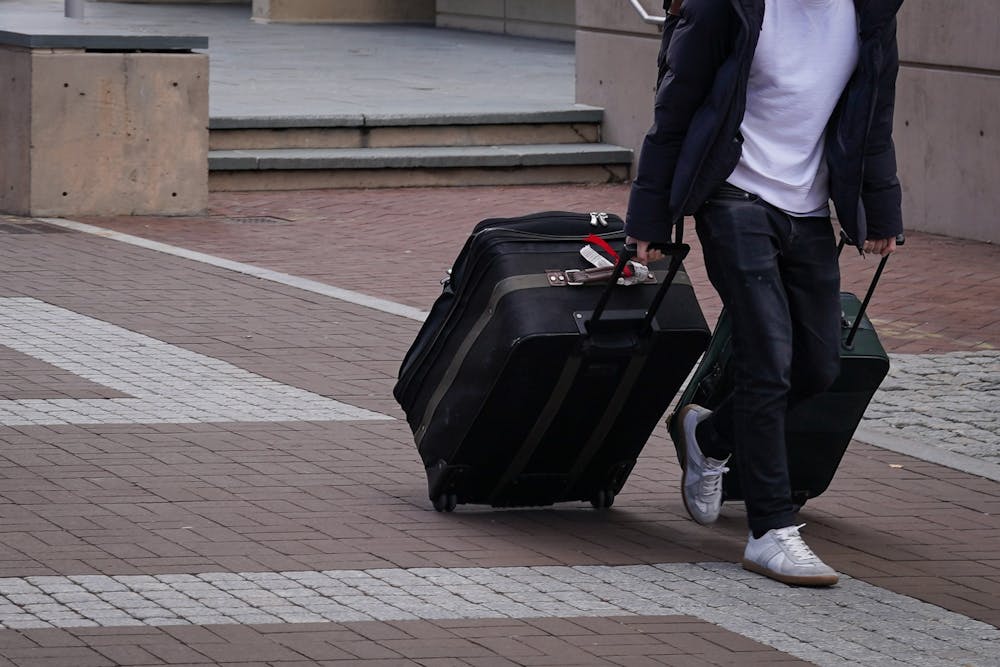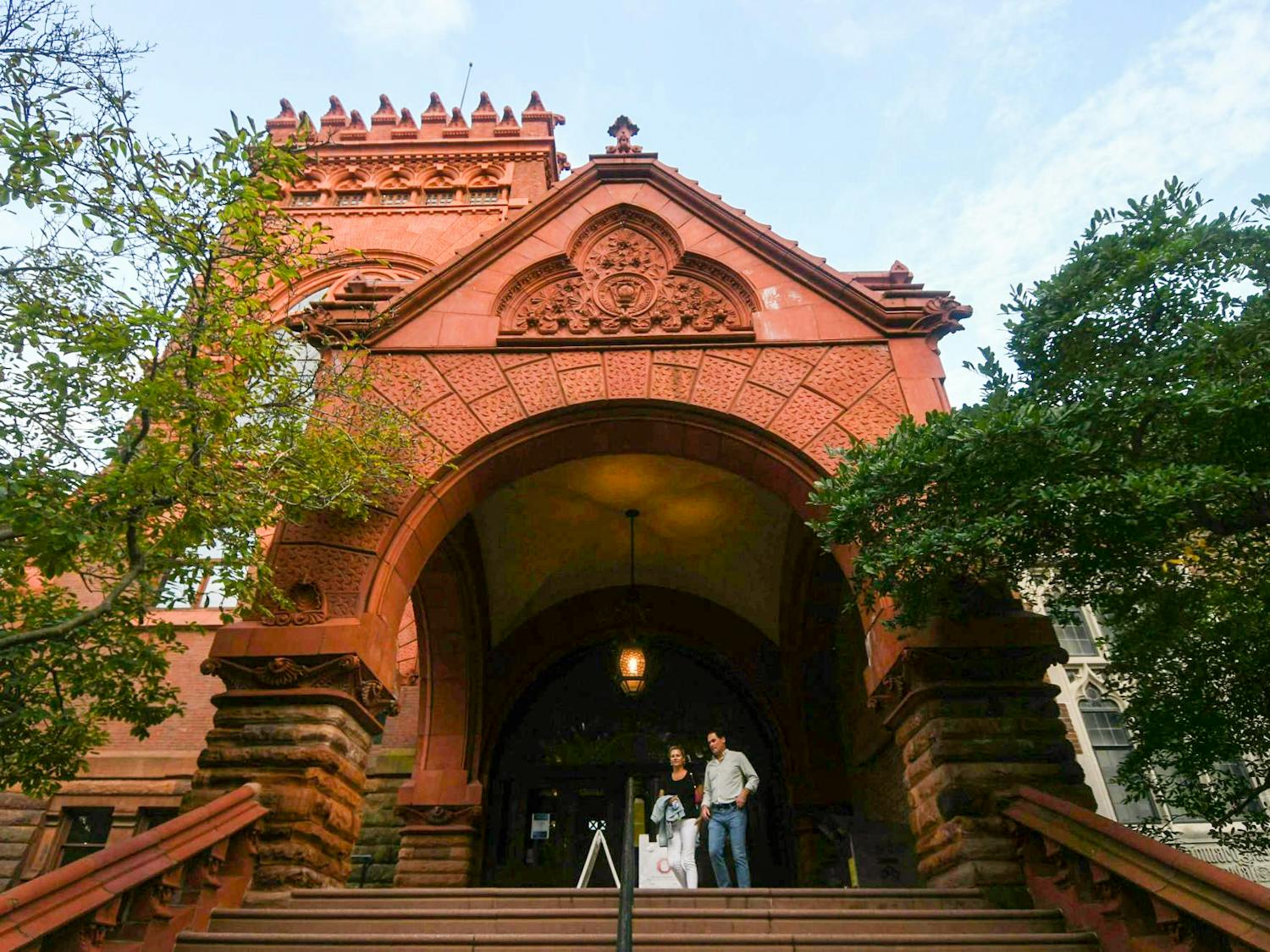Shock. Confusion. Anger. Relief. The past week has spun a whirlwind of emotions after thousands of international students worried that recent federal regulations would strip them of their visas. Although the restrictions have since been lifted, some still harbor resentments toward the Trump administration and fear that their immigration status remains unsafe for the fall semester.
On Tuesday, federal judge and 1988 Penn Law graduate Allison D. Burroughs announced that the United States government revoked a new immigration policy that would have banned international students who are taking an online-only course load this fall from entering or staying in the country. International students account for about 21% of Penn's graduate and undergraduate student population as of fall 2019.
“I was relieved and I was angry,” incoming Graduate School of Education first-year April Zhou, an international student from China, said. “It just feels like the government and the administration just didn't really give a damn about us.”
Zhou, who has lived in the U.S. for the past ten years under her F-1 student visa, has spent the last week fearing deportation in the event that GSE could not guarantee her an in-person class. As GSE plans to operate entirely online in fall 2020, with the exception of some clinal and executive programs, Zhou, who is currently in the U.S., felt that she was at risk of deportation.
On Monday, Zhou asked the University of Michigan, which is offering in-person classes this fall, to reinstate her intent to enroll for the upcoming semester this fall.
But on Tuesday afternoon, U.S. Immigration and Customs Enforcement and the Department of Homeland Security revoked the restrictions. Zhou then decided to stick with her original decision to continue her education at Penn this fall.
Like Zhou, rising Engineering senior and Chair of International Students Advisory Board Derya Yavuz was eager to be on campus this fall, but ICE’s announcement had put her plans on pause as she scrambled to ensure she had at least one in-person fall course to shield her from potential deportation.
On Thursday, she finally purchased her plane ticket from Turkey to the U.S. to return to campus this fall.

Some international students who hoped to study remotely from their home country this semester now feel comfortable moving forward with their fall plans.
Rising College senior Edward Jiang, who is a New Zealand citizen and Australian resident, has been staying in Philadelphia at his friend’s apartment since Penn transitioned to an online-only instruction model in March.
Jiang was planning to return home to Australia in August and take his courses remotely this fall. The new ICE policy, however, made him hesitate to do so. It was unclear whether or not he would lose his visa status under the restrictions if he returned home, Jiang said.
“The ICE policy put a lot of pressure on international students and there were a lot of factors that were outside our control,” Jiang said.
After the ICE order was reversed, Jiang said he confidently booked his flight home knowing that he can study remotely and maintain his active F-1 student visa status while in Australia.
Rising College and Wharton junior Hugo Leo also said he now feels more comfortable in his choice to take his fall courses online from his home country, Indonesia.
“It’s definitely relieved a lot of our fears and uncertainties, especially for our visa status moving forward,” Leo said. “Now I can revert back to my original way of thinking which is just considering this decision on the health basis as well as on an education basis.”
Many undergraduates applauded International Students and Scholar Services as well as the University for helping international students navigate through the uncertainty and panic caused by the policy.
“I was personally really inspired seeing how Penn handled the situation,” Leo said. He also described ISSS as “probably one of the country’s best international student offices.”
Zhou, however, said she felt GSE did not communicate well with her as she tried to seek solutions that would save her visa status.
“As a student, it doesn’t seem like they’re as invested in my success as maybe some of the other programs are and I’m not even in their program,” she said. “That makes me a little bit angry.”
Zhou remains concerned that new, threatening immigration policies could still arise.
“Because of what happened, I still don't feel 100% safe,” Zhou said.
Leo said that ICE’s policy, although rescinded, left him with a heightened awareness of how quickly his immigration status could be taken away.
“This experience has made me realize the fragility of our immigration status as well as the importance of rallying around the greater international and immigrant community in the U.S.,” Leo said. “For me, Tuesday's announcement is only a partial victory as there are still immigrant communities in the U.S. who experience our fear but on a daily basis.”
The new guidelines, announced by ICE’s Student and Exchange Visitor Program on July 6, received widespread backlash. Two days later, Harvard University and the Massachusetts Institute of Technology filed a lawsuit against the Trump Administration over the new policy. The legal battle gained nationwide attention as more than fifty universities, including Penn, filed an amicus brief in support of the lawsuit.









